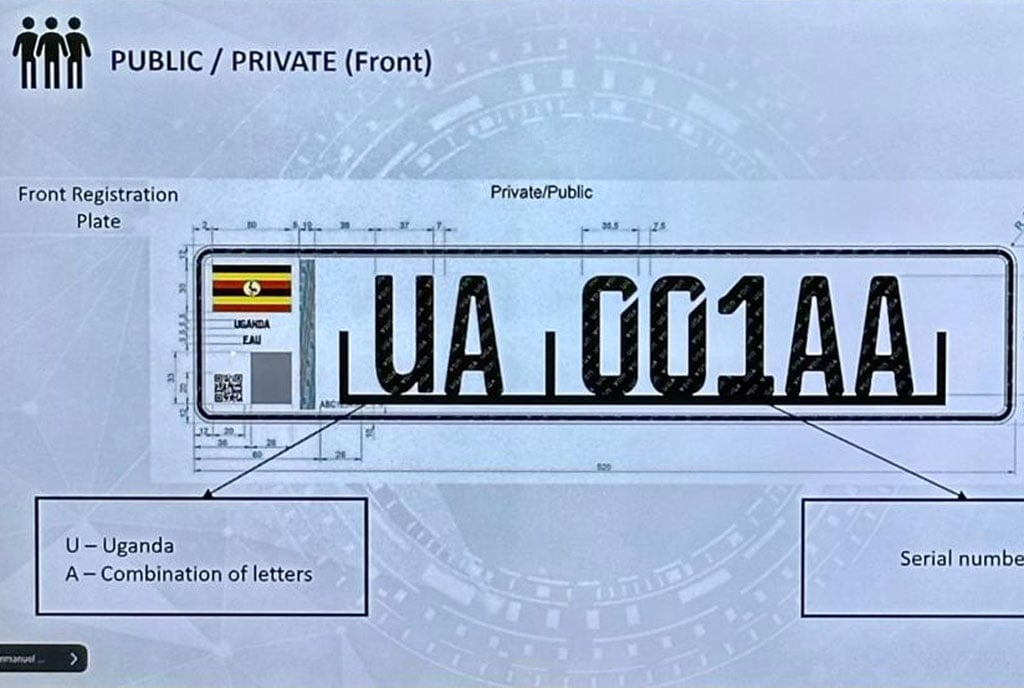A New Era for Uganda’s Roads
Uganda is entering a new era of traffic safety and vehicle management.
In 2024, the Government of Uganda started rolling out digital number plates for all vehicles in the country. This initiative is part of a broader strategy to modernize transportation, improve road safety, and reduce crime.

At first glance, this might sound like just a change in vehicle registration. But it’s much more than that. These new number plates are powered by smart technology that can help track stolen cars, manage traffic better, and even save lives in emergency situations.
In this article, we break it down — what digital number plates are, how they work, and why we should all support and embrace this major shift.
What Are Digital Number Plates?
Digital number plates are high-tech vehicle plates that contain a chip and GPS tracking system embedded inside. They look like regular plates, but they carry far more power.
These plates are part of a centralized digital system managed by the Uganda Security Printing Company (USPC). Every plate is linked to a vehicle’s identity, the owner’s information, and real-time data about the car’s movements.
Key Features of Uganda’s Digital Number Plates
- Electronic Chip Embedded: Stores important vehicle data.
- GPS Tracking: Allows authorities to locate a car if needed.
- Tamper-Proof: Any attempt to remove or tamper with the plate is detected.
- QR Code for Quick Scanning: Law enforcement can scan and verify details instantly.
- Unique Identity Per Vehicle: Even if the car changes ownership, the digital record remains.
- Link to National Databases: Helps improve coordination with police, URA, and traffic departments.
Why Uganda Introduced Digital Plates
Here are some of the biggest problems the government hopes to solve:
1. High Rate of Car Theft
Many car theft cases go unresolved because it’s difficult to track vehicles that cross district or national borders. With digital plates, stolen vehicles can be tracked in real-time.
2. Rising Cases of Unregistered and Cloned Cars
Some criminals register multiple cars using fake or cloned number plates. With the new system, this will become almost impossible.
3. Increased Road Accidents and Hit-and-Runs
If a vehicle is involved in an accident and flees the scene, GPS tracking can help authorities trace it quickly and bring the driver to justice.
4. Security Threats
Unidentified vehicles have been used in robberies and terror-related activities. Digital plates will help security agencies monitor suspicious movements.
Who Is In Charge of the Project?
The system is being implemented by the Ministry of Works and Transport, in partnership with the Uganda Police Force, Uganda Revenue Authority (URA), and the Uganda Security Printing Company.
How Will It Be Rolled Out?
The rollout is being done in phases:
- Phase 1: All newly imported vehicles from July 2024 onward are required to have digital number plates.
- Phase 2: Motorcycles and commercial vehicles like boda bodas and taxis will be next.
- Phase 3: Existing vehicle owners will be required to replace their old plates before the deadline (to be announced officially, but likely in 2025).
You’ll be informed through official channels when it’s your turn to replace your plate.
What Is the Cost?
The cost varies slightly depending on the vehicle category:
| Vehicle Type | Cost (UGX) |
|---|---|
| Private Vehicle | 714,300 |
| Motorcycle | 155,000 |
| Commercial Vehicle | Approx. 850,000+ |
| Replacement Plate | 714,300 |
Where Do You Go to Get Yours?
You can apply for the new plates through:
- URA Web Portal
- Designated Licensing Offices
- Authorized Dealers and Inspection Centers
Once registered, the plate is issued and linked to your vehicle within 48–72 hours.
What Happens If You Don’t Comply?
The government has stated that there will be a grace period, but after that:
- Vehicles without digital plates may be impounded
- Owners may face penalties or traffic fines
- You might not be able to renew insurance or license without upgrading
What People Are Saying
“At first I was worried about the cost, but when I think about how safe it will make my car, I’m on board.” – Brian, Car Owner in Kampala
“This will reduce crime. Most of the criminals use unregistered vehicles. Now they won’t be able to hide.” – Officer Namusoke, Uganda Police
“I transport goods from Mbarara to Mbale. Having a GPS gives me security, especially during night drives.” – Musa, Truck Driver
Challenges and Concerns
Of course, every new system comes with some push-back:
- Cost: Some Ugandans feel the cost is high.
- Data Privacy: Concerns about being tracked at all times.
- Implementation Speed: Some rural areas may lag behind in registration.
The government has responded by promising public awareness campaigns, subsidies for low-income drivers, and clear privacy guidelines.
This Is Bigger Than Just a Plate
This is part of a much larger system. The digital number plates will work hand-in-hand with:
- Smart Traffic Lights being tested in Kampala
- CCTV Road Monitoring
- Digital Driving Permits
- Vehicle Inspection Centers
- Integrated National ID & Transport Database
Together, this will make Uganda’s roads smarter, safer, and more secure.
Related Article: Ugandan Digital Plates
More Articles: Media Wall